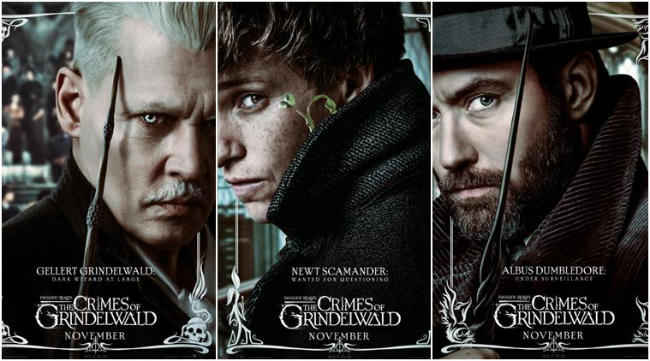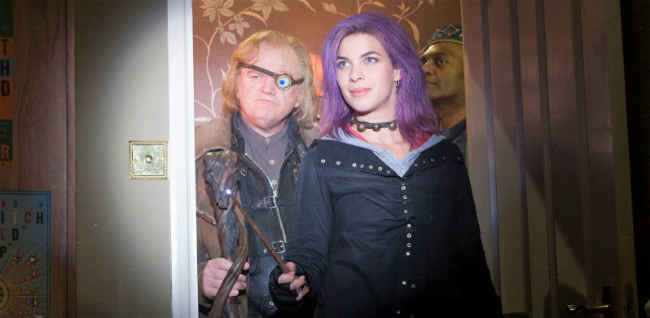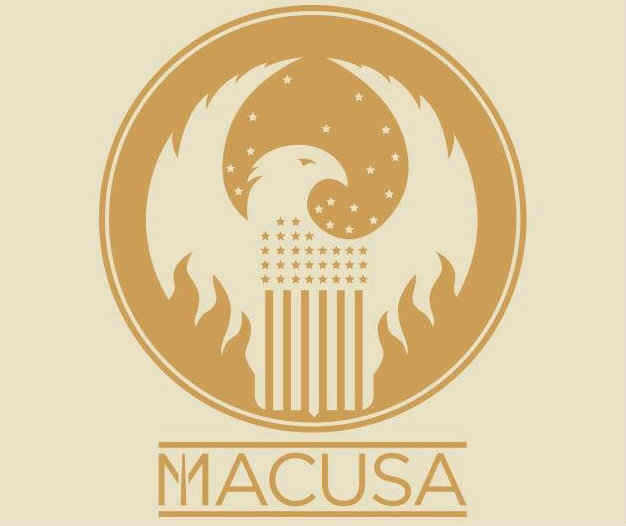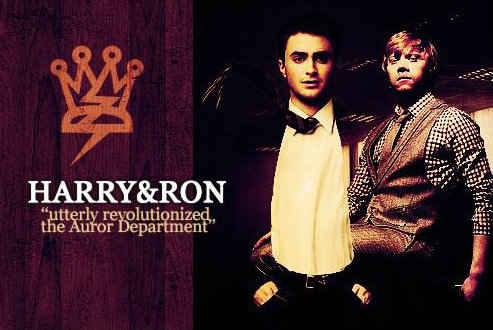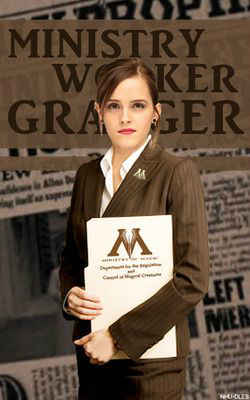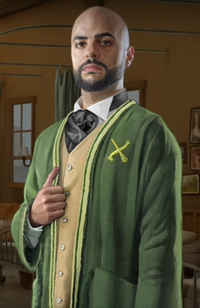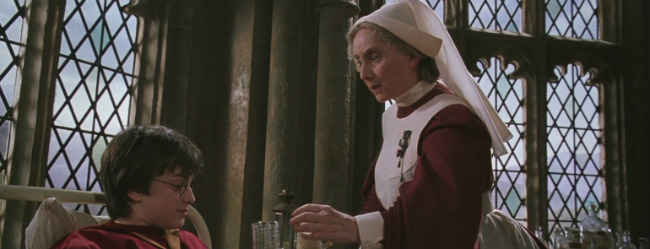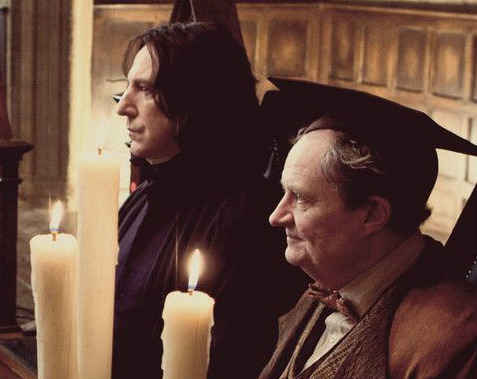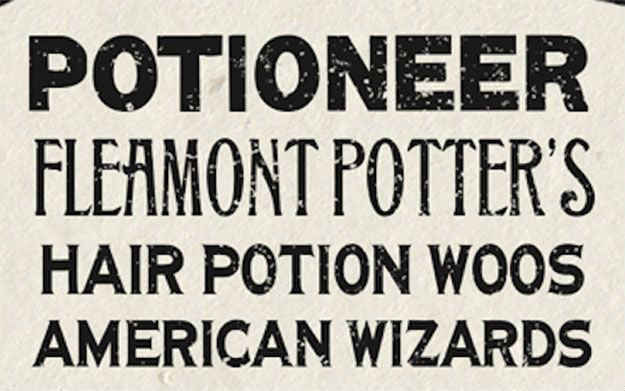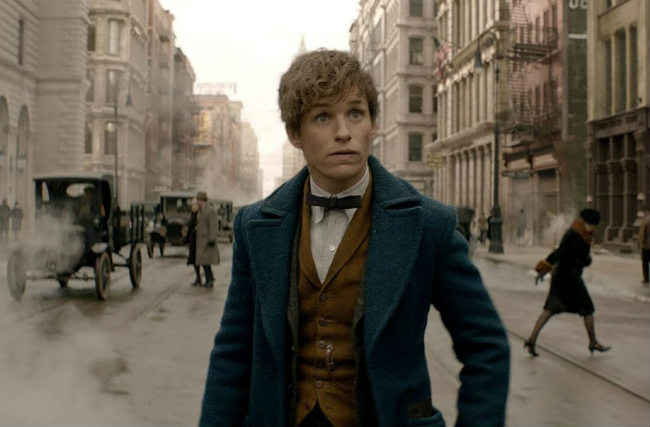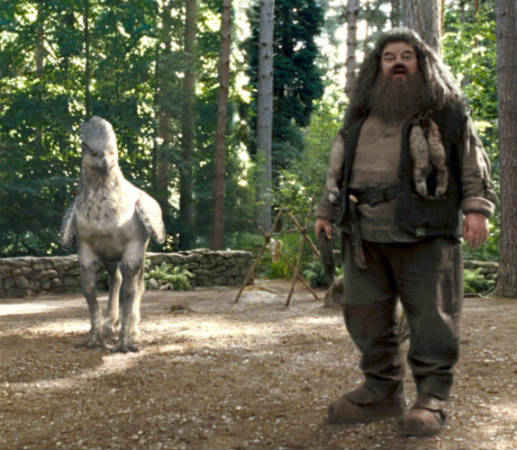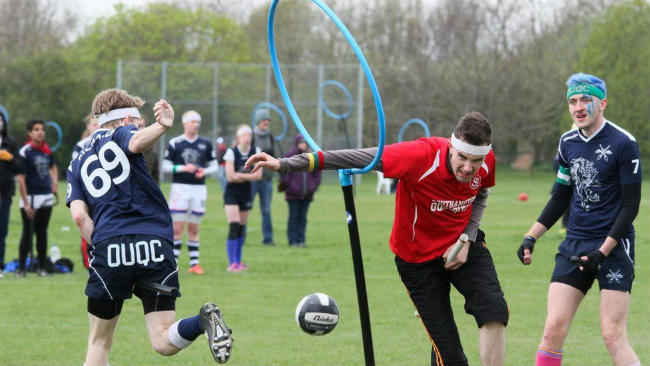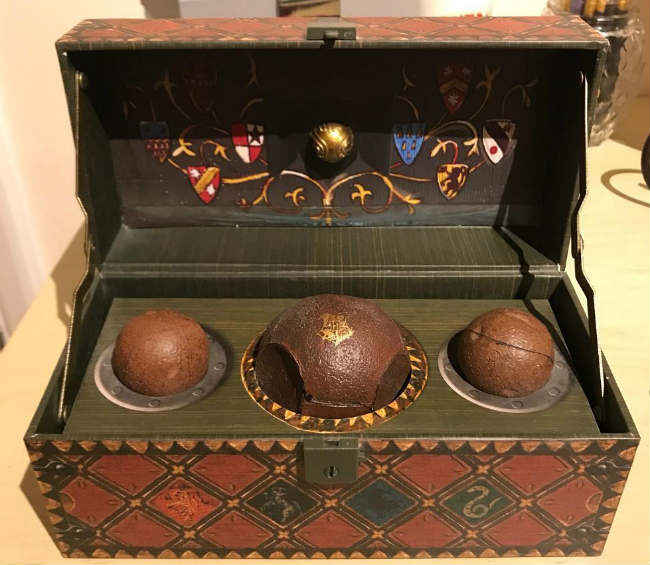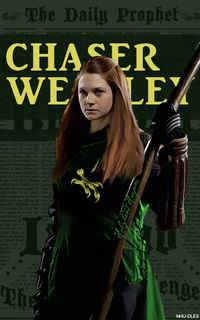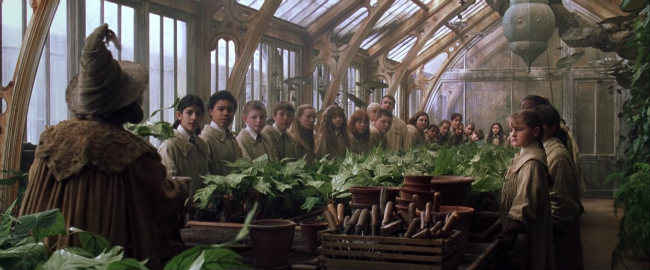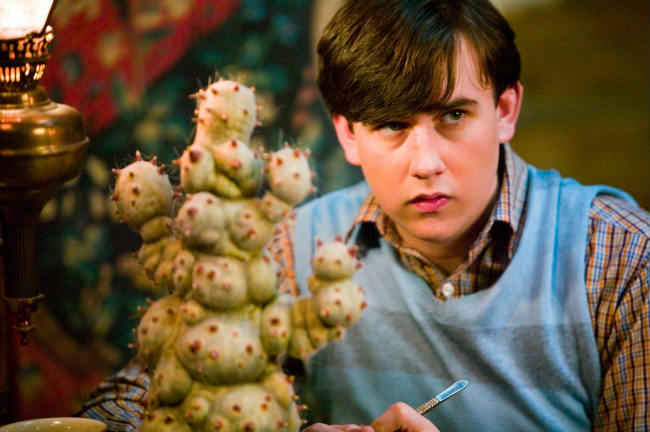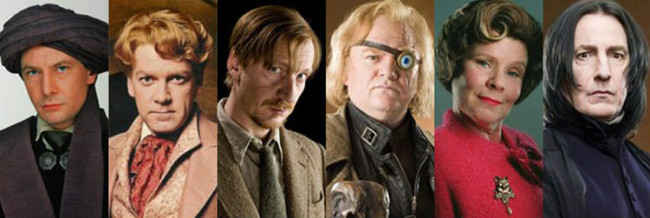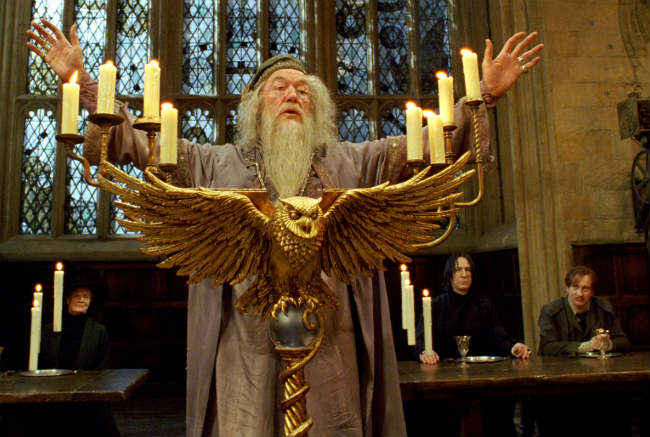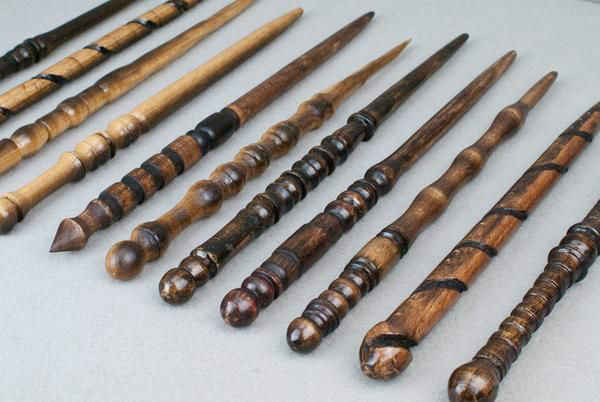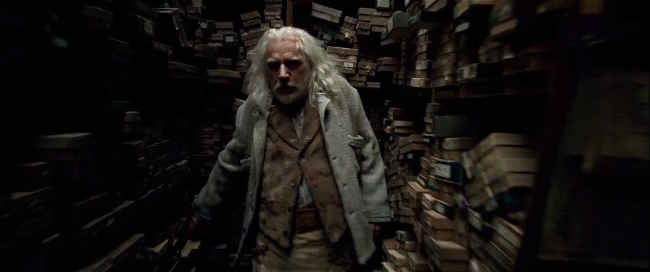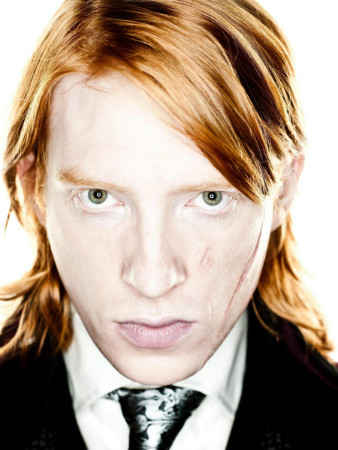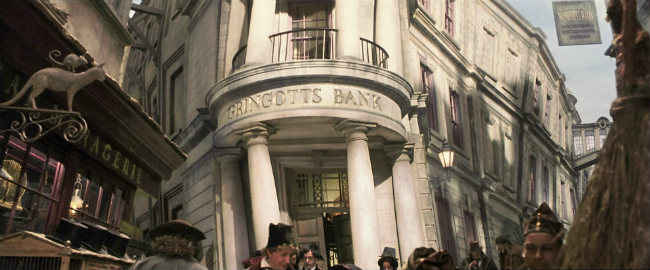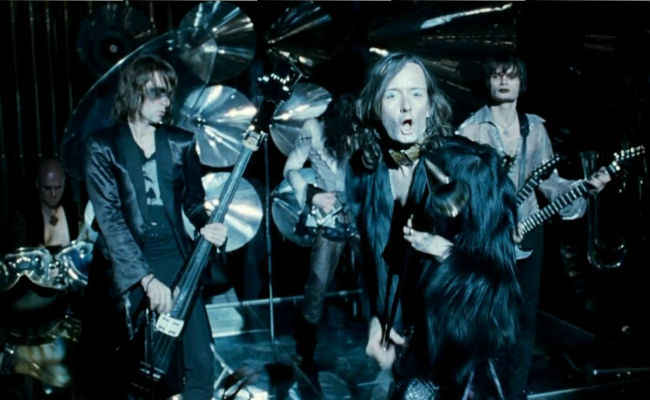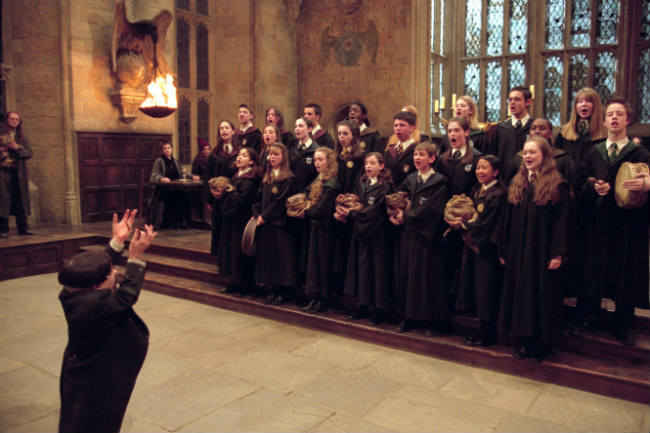A guide to professions in the wizarding world
With Fantastic Beasts: The Crimes of Grindelwald almost upon us, here's a comprehensive look into the major occupations in the wizarding world of Harry Potter.
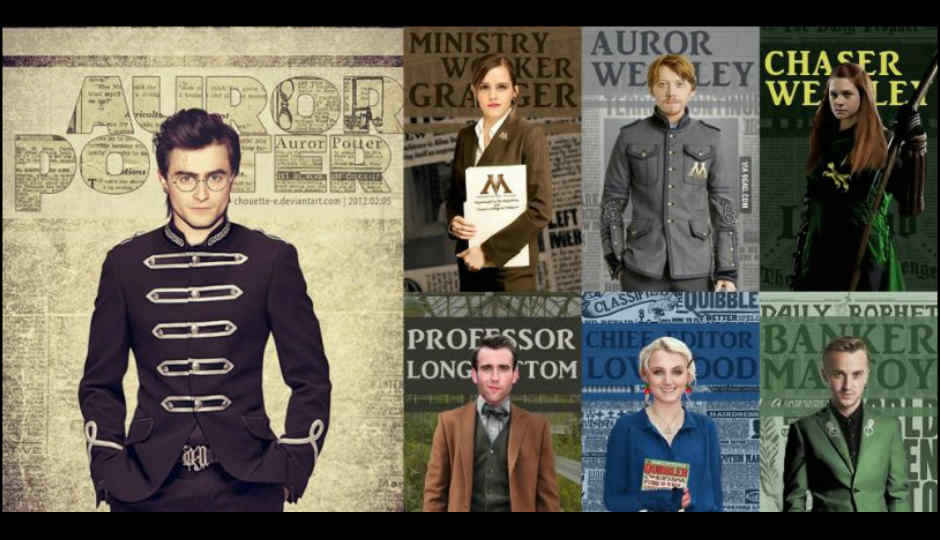
With the release of Fantastic Beasts: Crimes of Grindelwald a couple of days away, the Harry Potter universe has gotten exponentially more complex with the addition of multiple plays, books and films that expand the wizarding world to great lengths. The much-awaited sequel of the Fantastic Beasts franchise follows the quest undertaken by Newt Scamander, a celebrated magizoologist who was a student during this timeline, along with wizarding-world favourite, Albus Dumbledore to thwart Gellert Grindelwald’s evil plans of spreading pure-blood wizards’ domination over all non-magical beings.
 Survey
Survey
Fantastic Beasts: Crimes of Grindelwald follows Newt Scamander, a famous magizoologist.
The original Harry Potter books and films already boasted a very extensive lowdown of magical occupations or careers only to be further convoluted by the addition of a brand new franchise. Despite the occupations being inherent to the wizarding world created by J. K. Rowling, they possess some striking similarities to numerous occupations in our world or the ‘muggle’ world. Let’s delve into the intricacies of the major occupations in the wizarding world and their Muggle counterparts (if any).
Auror
This wizarding world occupation is possibly one of the most coveted professions in the Potterverse, since the protagonist, Harry Potter, loved and held dear by the Pottermaniacs for years expressed his keen interest in taking up this dangerous profession from the tender age of fifteen. An ‘Auror’ is essentially a dark-wizard catcher who are highly-trained elites tasked with the hefty responsibility of safeguarding the magical community from large-scale threats.
Mad-Eye Moody, Kingsley Shacklebolt and Nymphadora Tonks were well-known Aurors.
The Aurors are usually employed by the wizarding governing bodies in countries like the United States and Great Britain along with several other European countries. In Great Britain, they are employed by the Ministry of Magic whereas The Magical Congress of the United States of America employs these skilled professionals in the US.
The Magical Congress of the United States of America (MACUSA)
The Aurors usually perform their responsibilities depending on the magical education they have been privy to and the kind of threats and concerns they are trained to combat. In Britain, the Aurors usually attend to threats from the Dark Arts and are tasked with incarcerating and detaining dark witches or wizards. However, in the United States, the Aurors investigate any criminal, Dark or not, who poses a significant threat to the wizarding community. The counterpart to Aurors in the Muggle world would be police officers and the military since they both work towards safeguarding their community or country against large-scale threat that may be detrimental to their security.
The requirements for becoming an Auror in the Ministry of Magic are tremendously difficult to achieve and tedious, as expressed by Minerva McGonagall in the books. She stated that the requirements entail the applicant to have studied a minimum of five N.E.W.T. (Nastily Exhausting Wizarding Test) subjects and they must receive grades of either Exceeds Expectations or Outstanding in all of them. Following this, the applicant will go through a host of character and aptitude tests conducted at the Auror office.
Harry and Ron became Aurors after the Second Wizarding War.
The requirements in academics were completely forgone after the completion of the Second Wizarding War. New Minister for Magic and former Auror, Kingsley Shacklebolt allowed any individual who survived the war to undertake a career as an Auror in the Ministry. Harry Potter and Ron Weasley did not go back to Hogwarts to take their N.E.W.T.s, however, they were recruited as Aurors in the Ministry under Kingsley.
Magical Law Enforcement workers
The employees of the Department of Magical Law Enforcement work under numerous subdivisions where they work towards upholding the wizarding laws. All other departments in the Ministry of Magic are answerable to the Department of Magical Law Enforcement which grants its head with great power. Harry Potter, the former Head Auror, went on to head this department by 2019. Hermione Granger also was the Deputy Head of the Department of Magical Law Enforcement and she partnered up with Kingsley Shacklebolt to eradicate some of the regressive, oppressive and biased laws that were mostly in favour of the pure-bloods.
Hermione Granger went on to become the Deputy Head of the Department of Magical Law Enforcement.
The ‘Muggle’ equivalent of Magical Law Enforcement workers would be lawyers since they endorse and champion the laws of our world. The Department of Magical Law Enforcement’s counterpart in our world would be the justice system comprised of judges, courts, jurors and other such officials and departments.
This Department is extremely sizable and enfolds within itself many divisions and subdivisions such as The Improper Use of Magic Office, Wizengamot Administration Services, Administrative Registration Department, Department of Intoxicating Substances, the Auror Office, Misuse of Muggle Artefacts Office and many more.
Healer
Omar Abasi, a healer from mobile game Fantastic Beasts: Cases from the Wizarding World.
Medical emergencies and magical injuries are aplenty in the wizarding universe with Dark Wizards, spells and dangerous creatures looming around every corner. A healer is essentially a wizarding world equivalent to a doctor or physician. They focus their resources towards the sick and injured, just like doctors, however, their job seems to be manifold times difficult than your regular physician, since the world of spells and mystical creatures can make for some unnerving ailments and injuries. Most Potterverse fans would associate the occupation ‘healer’ with Madame Pomfrey who tended to the students studying at Hogwarts School of Witchcraft and Wizardry.
A still of Madame Pomfrey, the in-house healer at Hogwarts with Harry.
Healers utilize and practice ‘Healing’ magic which is a branch of magic that concentrates on bettering the mental and physical health of a human being. A famous place in the universe inhabited by a large number of healers is the St. Mungo’s Hospital for Magical Maladies and Injuries. Healers treat some seemingly-bewildering to us ‘muggles’ like Dragon Pox, spattergroit and vanishing sicknesses. Potions are essential for healers since a significant amount of their treatments are administered through whipping up a magical concoction or potion like Skele-Gro (regrows bones), Blood-Replenishing potion (to cure the fatal effects of blood loss), Wiggenweld Potion (wakes up someone from a magically induced sleep) and many more.
Potioneer
Severus Snape and Horace Slughorn are two famous potioneers in the Potterverse.
A potioneer is any such individual that dabbles in the art of potion making as their primary source of income. Also known as potion-brewers or potion-makers, they can be professional potion brewers, studying or inventing potions or teaching potions as a subject at any wizarding school or institute. A potions master who teaches due to his profound expertise in the subject will have achieved an N.E.W.T. in this subject.
Harry Potter’s grandpa makes life easier for baldies with his potions expertise!
Some famous potioneers from the wizarding world include Horace Slughorn, Severus Snape or the ‘Half Blood Prince’ and Fleamont Potter, Harry Potter’s grandfather, whose potions advertisement appears in the Daily Prophet at the beginning of Fantastic Beasts and Where to Find Them. The muggle world equivalent of a potioneer would be a chemist or a scientist, since they make concoctions for a living, much like chemists make medicines, and they attempt to make discoveries and inventions in the potions world, much like scientists.
Magizoologist
Newt Scamander, well-renowned magizoologist and protagonist of the Fantastic Beasts franchise.
Love for mystical or magical creatures, an interest in their origins and nature and tending to the care of these beasts are key indicators of a magizoologist. Simply put, they are individuals that delve into the study and care of magical creatures. Also known as wizarding naturalists, a person does not need to have graduated from a wizarding school or any school per se to become a magizoologist. Newt Scamander is a world famous magizoologist who has written Fantastic Beasts and Where to Find Them, a mandatory textbook for the students of Hogwarts School of Witchcraft and Wizardry. Newt’s love for magical creatures was nurtured early on since his mother bred hippogriffs.
Our beloved Hagrid conforms to being a magizoologist as well, along with being a Professor at Hogwarts.
Magizoologists are undeniably similar to zoologists in our world since they have the exact same job profile, studying the animal/creature species and their interactions in nature, with the exception of the magical element. The beloved character, Rubeus Hagrid, can also be called a magizoologist since he teaches the subject that caters to this practice. A dragonologist, like Charles ‘Charlie’ Weasley, is a magizoologist that specializes in the study of dragons. More niche, but a magizoologist nonetheless. Luna Lovegood is another well-known character in this field, although she is referred to as a wizarding naturalist.
Professional Quidditch player
Quidditch is already part of the Muggle world! Sadly, minus the flying brooms.
A profession that has been revered and enjoyed by the wizarding world as well as the readers and viewers who incessantly wished it was a real sport. Muggle Quidditch is a thing, but it doesn’t compare to the appeal of the real Quidditch which is characterised by its flying broom, which is missing from the Muggle version. The sport is a massive phenomenon in the wizarding world and serves as kind of an equivalent to passion induced by football or soccer in the real world, according to Hagrid.
Bludgers (both ends), Quaffle (middle) and the Golden Snitch (top middle).
Quidditch comprises of multiple elements and players which make it an immersive and a complicated sport which takes skill and practice to master. It involves two teams trying to achieve the most points by the end of the game. The Golden Snitch is a golden flying ball that is extremely agile and difficult to spot. The Seekers on both teams strive to capture this ball worth a 150 points. Catching the snitch also ends the game and usually crowns the team that caught it as the winner. The Chasers, mimicking Strikers in football, attempt to get the Quaffle into the hoops, the Keeper, equivalent to the goalkeeper, tries to deflect the Quaffle from the hoops while the Beaters, mimicking defenders in football, try to beat down the Chasers of the opposing team with Bludgers, extremely finicky and violent balls.
Ginny Weasley was a professional Quidditch player, playing as a Chaser in the Holyhead Harpies.
There are several professional Quidditch teams at the national level as well as the regional level. A large number of the main cast of the Potterverse played Quidditch at Hogwarts including Harry, Ron, Ginny, Fred, George, James Potter and more. However, Ginny Weasley went on to pursue a career as a professional Quidditch player and played in the British professional Quidditch team, Holyhead Harpies. Later, Ginny retired and became a Senior Quidditch correspondent at the Daily Prophet.
Herbologist
A still of Professor Sprout teaching a Herbology class, being a capable herbologist herself.
Herbologists partake in the study of magical plants and fungi while learning how to care and preserve these plants, learning the eclectic properties of the varied species and utilizing them for their magical properties. While some plants serve as ingredients for potions and other medicine, some possess an innate magical property which does not require any kind of concoction to exhibit them. Herbologists can be individuals who study magical plants as well as professors who teach the art of herbology.
Neville Longbottom showed a persistent interest in Herbology since his time at Hogwarts.
Professor Pomona Sprout and Neville Longbottom, after his brief stint as an Auror, are well-known professors of herbology. Another renowned herbologist in the wizarding world was Tilden Toots who a radio show on the Wizarding Wireless Network known as Toots, Shoots ‘n’ Roots. The muggle correspondent to this occupation is botanists who specializes in the scientific study of plants.
Professor
A few of the eminent or infamous professors at Hogwarts.
A Professor in the wizarding world in quite like its Muggle counterpart. The title is conferred upon those who are esteemed members of the wizarding scholarly and scientific community who delve deep into education as well as research. A professor at wizarding schools and institutes has a wide range of powers including awarding or deducting points for good conduct or misconduct, giving detention, prohibiting students from accessing certain areas or even allowing certain students access into prohibited areas themselves.
Albus Dumbledore, former Headmaster and Professor at Hogwarts.
The Professors directly report to the Headmaster or Headmistress at the school or institution. They are often specialists and abundantly gifted in their particular field of academics and possess exponential practical knowledge of the subject as well. Several major characters of the Potterverse like Albus Dumbledore, McGonagall, Snape, Hagrid, Lupin and many more have been professors at some point. Neville Longbottom became a Herbology professor at Hogwarts after forgoing his position in the Ministry of Magic as an Auror.
Wandmaker and Wandkeeper
Wands have several distinct magical properties that separate them from each other.
A wandmaker is a specialist in wandlore who builds and sells wands to witches and wizards, thus making it one of the most important professions in the wizarding world. The wandmaking shops date back to the Ollivanders shop inception way back in 382 B.C. Wandless magic is bewilderingly complex and only a select few witches or wizards possess this skill, thus making wands a bare essential to a wizard. Famous wandmakers include Garrick Ollivander, Mykew Gregorovitch and Death himself who fashioned the Elder Wand, which is the most powerful wand in the world.
Mykew Gregorovitch, a famous wandmaker in Europe and the main competitor to Ollivanders.
Wandkeepers are individuals that have been employed by Garrick Ollivander to maintain the several outlets or branches of Ollivanders across the Britain. The terms wandmaker and wandkeeper are sometimes used interchangeably since there is still no clear sign that the two are very much distinguished from each other, owing to the basic skills requirements being the same. A wandmaker and wandkeeper must be proficient in Charms (of course!), Divination (to foresee when the customers are coming in), Non-Verbal Magic and Wandlore.
Curse-Breaker
Bill Weasley was a curse-breaker owing to his adventurous spirit, as explained by Ron.
A Curse-Breaker is a wizard or witch who removes, counters or breaks curses from any mystical object, an old archeological site, treasure or other such items. Curse-breakers are employed by the Ministry of Magic for removing curses that were placed illegally on objects. However, the term is also used to describe a group of bankers with an intrepid spirit who were involved in the ‘treasure and curse business’, employed by Gringotts Wizarding Bank. They were tasked with lifting and destroying curses placed on historical sites that may contain treasure or artefacts of historical significance and monetary value.
Gringotts Wizarding Bank usually employed curse-breakers to uncover cursed treasures.
Curse-breaking is a highly dangerous profession since the potency of the curse placed upon an object or site is usually unknown and can cause detrimental effects or even befall death upon the curse-breaker. Proficiency in arithmancy is an absolute must. A curse-breaker must be well-acquainted and must score well in subjects like Defence Against the Dark Arts, Charms, Potions, Transfiguration and most importantly, Ancient Runes. A curse-breaker can also be considered as a wizarding world equivalent of an archeologist, however, the risk of a curse-breaker’s job is certainly much higher than that of an archeologist.
Musician
Myron Wagtail, the lead singer of famous wizarding band, the Weird Sisters.
Music is deeply integrated in the wizarding world and has a host of bands and independent artists. These artists and bands are usually featured on the Wizarding Wireless Networking (WWN), a popular wizarding radio station. The books and films incorporated musicians in choirs at Hogwarts that even comprised of frogs croaking to the melodies, the Weird Sisters, a famous wizarding band, playing at the Yule Ball during the Triwizard tournament, bands at weddings and other areas.
A choir performing at Hogwarts with frogs as companions.
Molly Weasley was a huge fan of famous witch-singer Celestina Warbeck, who sang popular songs like A Cauldron Full of Hot, Strong Love and You Charmed the Heart Right Out of Me. She even fondly recollects dancing with her husband, Arthur, to the former melody at the tender age of eighteen. Celestina Warbeck’s songs were often accompanied by a group of background singers who were actually banshees. Talk about rocking out!
There you have it! A detailed look into some of the major occupations in the wizarding world along with characters that have been engaged in the profession as well. Would you like to see a Part 2 to this article that delves into some lesser-known professions of this world? Let us know at editor@digit.in.
Dhriti Datta
Perpetually sporting a death stare, this one can be seen tinkering around with her smartphone which she holds more dear than life itself and stuffing her face with copious amounts of bacon. View Full Profile
